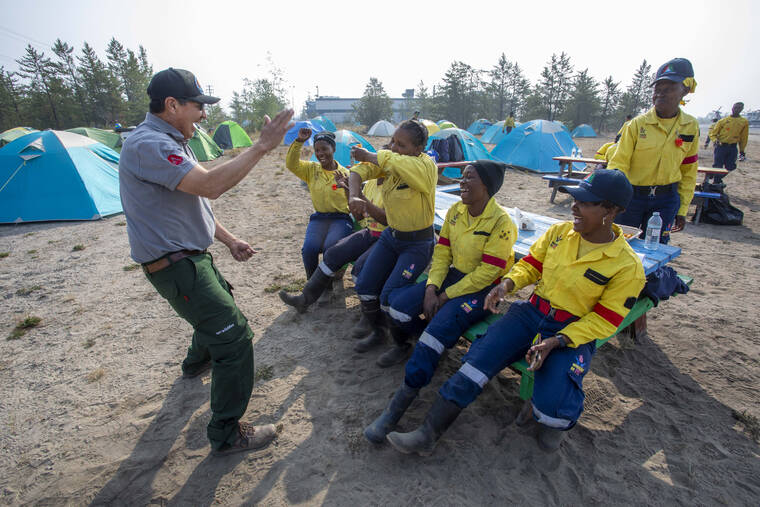Canadian military mobilizes to help fight wildfires
YELLOWKNIFE, Northwest Territories — Members of the Canadian Armed Forces were set to mobilize in the Northwest Territories on Tuesday, as wildfires threatened communities including the territorial capital, and hundreds of people were airlifted to safety.
The military was expected to send a helicopter and Twin Otter airplane along with 124 soldiers, with 100 set to help with firefighting tasks such as dousing hot spots and clearing areas, and the other 24 coordinating logistics.
The city of Yellowknife, the territorial capital, declared a local state of emergency Monday night, citing an imminent wildfire threat.
It said on the platform X, formerly known as Twitter, that such declarations are made when it is determined that additional powers are needed to take immediate action. These include taking over the use of vehicles or property to respond to an emergency or authorizing qualified people to provide services or aid.
As of Tuesday, there were over 230 active wildfires in the territory, and five communities had been evacuated. Hundreds of northerners were being airlifted from at least three communities in the face of wind-whipped wildfires.
“Over the past 24 hours or so there has been an airlift like this territory has never seen,” Northwest Territories fire information officer Mike Westwick said Monday. “Planes flying out of Hay River, planes flying out of Fort Smith, planes flying out of Jean Marie River.”
“The highways are compromised. It’s a very serious situation,” he added.
Jane Groenewegen was helping a friend leave the hamlet of Enterprise just south of Hay River on Sunday evening when Royal Canadian Mounted Police officers knocked on the door.
“They said, ‘No, you have to evacuate immediately.’ It was probably only 30 to 45 minutes after that when basically the entire town of Enterprise burned down,” she said in a phone interview.
The RCMP reported at least 12 abandoned and damaged vehicles between Hay River and Enterprise.
“Reports of poor visibility due to heavy smoke on the roadway have been received and it is likely that this contributed to the vehicle collisions and vehicles becoming immobilized after leaving the roadway,” said Cpl. Matt Halstead in a release
More than 21,000 square kilometers (8,108) have burned so far this year.
Canada has seen a record number of wildfires this year.

